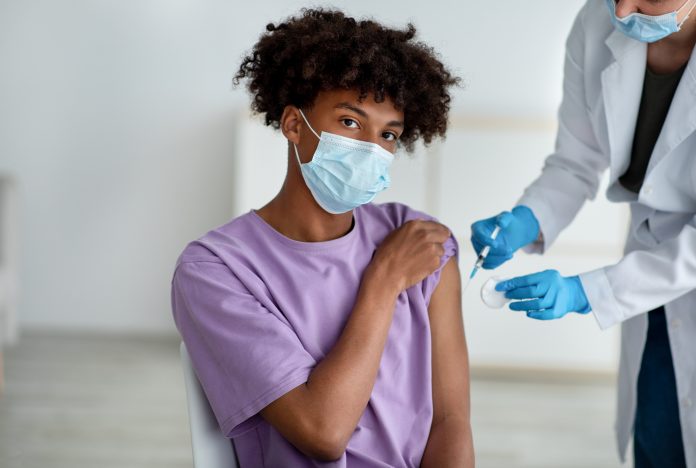The Joint Committee on Vaccination and Immunisation (JCVI) has recommended that all 16 and 17-year-olds should receive their first dose of the Pfizer-BioNTech vaccine
Based on the latest data, the Joint Committee on Vaccination and Immunisation (JCVI) has advised that all healthy 16-17-year-olds should be offered their first dose of the Pfizer-BioNTech vaccine.
Advice on when they should receive their second dose will come later, but it is likely that it will come from 12 weeks after their first dose.
Health and Social Care Secretary Sajid Javid said:
“Today’s advice from the independent Joint Committee on Vaccination and Immunisation (JCVI) means more young people aged 16 and over can benefit from COVID-19 vaccines. I have accepted their expert recommendations and I have asked the NHS to prepare to vaccinate those eligible as soon as possible.
“The JCVI have not recommended vaccinating under-16s without underlying health conditions but will keep its position under review based on the latest data.
“Those aged 12 to 15 with severe neuro-disabilities, Down’s Syndrome, immunosuppression and multiple or severe learning disabilities, as well as people in this age group who are household contacts of individuals who are immunosuppressed, are already eligible for vaccination. JCVI will continue to review data and provide updates on at risk groups aged 12 to 15 and whether any additional groups will be added.
“COVID-19 vaccines have saved more than 60,000 lives and prevented 22 million infections in England alone. They are building a wall of defence against the virus and are the best way to protect people from serious illness. I encourage everyone who is eligible to come forward for both their jabs as quickly as possible.”
Side effects
Younger people should call 111 or see their GP if they experience any of the following symptoms after receiving their vaccination:
- A stabbing pain and/or tightness in the chest which may spread across the body
- Pain in the neck that may spread across the shoulders and/or arms
- Shortness of breath when lightly exercising or walking
- Difficulty breathing when resting or feeling light-headed
- Flu-like symptoms such as a high temperature, tiredness and fatigue
- Palpitations or an abnormal heart rhythm
- Feeling like you need to be sick











